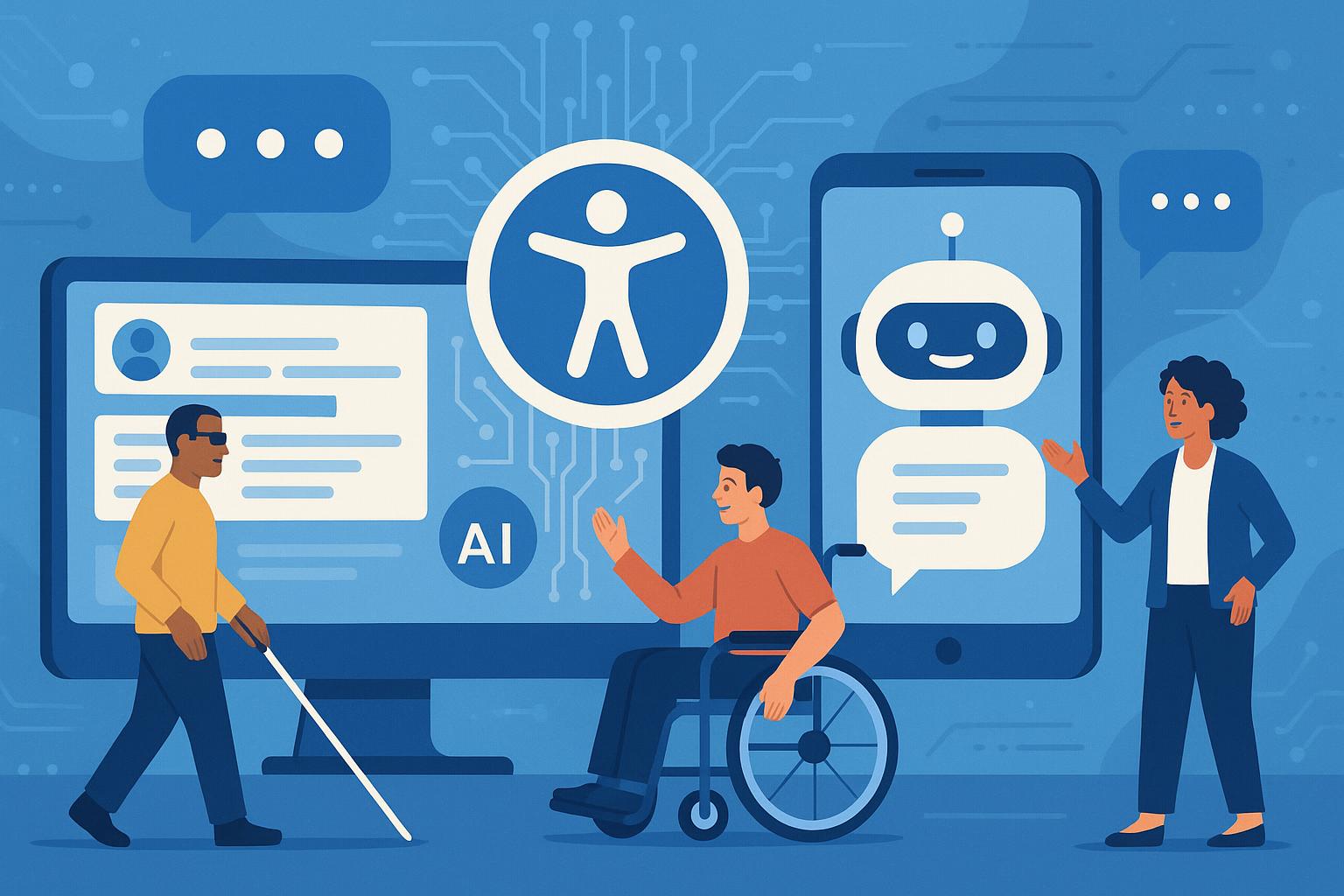Revolutionizing Patient Interactions with AI AssistantsIn the fast-paced healthcare environment, where time is of the essence, digital technology plays a critical role in enhancing both the efficiency and quality of patient care. AI Assistants, in particular, have become a transformative force in patient interactions. This article explores how chatbots are reshaping communication within medical practices, focusing on their design, functionality, and the distinct advantages they offer to various healthcare professionals, including Medical Doctors, Eye Doctors, Dentists, Medical Assistants, Practice Managers, and Therapists.The Role of Digital Transformation in HealthcareDigital transformation in healthcare is a critical evolution, necessary to address the growing complexities and demands of modern medicine. The development and integration of AI Assistants significantly enhance the user interface (UI) and user experience (UX), boosting interactions between patients and healthcare providers. These intelligent systems are designed to provide instant responses and are available 24/7, ensuring uninterrupted and consistent patient care.Enhancing Patient Communication: The Power of ChatbotsChatbots can simulate human interactions and offer automated responses to common patient inquiries. This capability is especially useful for handling routine questions, scheduling appointments, and managing medications, thereby allowing healthcare professionals to devote more time to critical patient care tasks.Instant Responses: Patients often seek immediate answers to health-related questions. Chatbots deliver real-time responses, which are essential for enhancing patient satisfaction and engagement.24/7 Availability: Healthcare needs often arise outside of regular business hours. Chatbots provide continuous support, offering guidance and critical information at any time, which is invaluable for emergency care and after-hours inquiries.Consistent Patient Engagement: Ongoing communication is crucial for managing chronic conditions. Chatbots facilitate regular check-ins by sending medication reminders, tracking health progress, and encouraging adherence to treatment plans.Case Studies: AI Assistants in ActionConsider a dental practice where a chatbot sends reminders for regular check-ups and post-treatment care, markedly reducing complications and enhancing patient outcomes. Another example involves a chatbot used by an Eye Doctor that collects preliminary symptoms before the visit, leading to more focused and efficient consultations. Customizing Chatbot Features for Various Healthcare ProfessionalsMedical Doctors and SpecialistsFor general practitioners and specialists, chatbots can triage symptoms prior to visits, prioritize cases based on urgency, and collect pre-consultation information, leading to more streamlined patient management and shorter wait times.DentistsChatbots in dental practices are vital for scheduling appointments, sending oral hygiene tips, and managing follow-up care, which boosts patient compliance and improves dental health outcomes.Eye DoctorsOphthalmologists can use chatbots to monitor patients' vision changes, alerting both the patient and the doctor if an earlier consultation becomes necessary.Medical AssistantsChatbots assist medical assistants by handling administrative tasks such as inventory management, appointment scheduling, and patient follow-ups, increasing practice efficiency.Practice ManagersFor practice managers, chatbots are an invaluable tool for streamlining operations, managing billing questions, verifying insurance, and tracking compliance, ensuring the smooth operation of healthcare facilities.TherapistsTherapists can employ chatbots to provide additional support to patients, offering therapeutic exercises and mindfulness activities, thereby enriching the therapeutic process.Implementing Chatbots in Your PracticeTo integrate chatbot technology effectively, it's essential to identify the specific needs of your practice and patients. Collaborating with experienced UI/UX designers and ensuring adherence to patient confidentiality guidelines are crucial steps. Healthcare professionals should aim to customize chatbot interactions to be empathetic and sensitive to patient needs, striking a balance between automated efficiency and a human touch.ConclusionChatbots mark a significant advancement in how healthcare providers interact with their patients. By automating routine tasks, providing continuous communication, and personalizing patient care, chatbots not only boost operational efficiency but also enhance patient satisfaction and engagement. As the digital landscape evolves, adopting chatbot technology in healthcare settings becomes essential for practices determined to succeed in this new digital era.Embracing these digital tools will help healthcare professionals meet the challenges of modern healthcare delivery, preserving both the quality and the humanity of patient care.
06/04/2025

Revolutionizing Patient Interactions
Enhancing Care with AI Assistants

Key Takeaways
- Chatbots improve patient communication by providing instant responses and handling routine inquiries, which enhances patient satisfaction and engagement.
- Chatbots are available 24/7, ensuring continuous support and facilitating regular check-ins, which is crucial for emergency care and managing chronic conditions.
- Healthcare professionals, including Medical Doctors, Dentists, and Eye Doctors, can use chatbots to streamline consultations and prioritize patient care effectively.
- Implementing chatbot technology requires customization to meet the specific needs of practices and patients, ensuring a balance between automated efficiency and a human touch.
- Chatbots help in preserving the quality and humanity of patient care by automating administrative tasks and boosting operational efficiency.
How do chatbots enhance patient satisfaction in healthcare?
Chatbots enhance patient satisfaction by providing instant responses to health-related inquiries and managing routine tasks, which allows healthcare providers to devote more time to direct patient care.
What are the benefits of chatbots for healthcare providers?
Chatbots benefit healthcare providers by automating administrative tasks such as scheduling, patient follow-ups, and handling routine inquiries. This increases operational efficiency and improves patient care quality.
Can chatbots be used outside of regular business hours?
Yes, chatbots are available 24/7, providing continuous support and information, which is particularly valuable for after-hours inquiries and emergency care situations.
What are some specific ways chatbots can help dentists and eye doctors?
Chatbots assist dentists by scheduling appointments and sending oral hygiene tips, while eye doctors use chatbots to monitor vision changes and alert for earlier consultations if necessary.
What should healthcare professionals consider when implementing chatbots?
Healthcare professionals should customize chatbots to be empathetic and sensitive to patient needs, ensuring the technology adheres to patient confidentiality guidelines and suits the specific needs of their practice.
How do chatbots preserve the humanity of patient care?
Chatbots preserve the humanity of patient care by supporting continuous communication and personalized care, while allowing healthcare professionals more time for direct interaction with patients.














